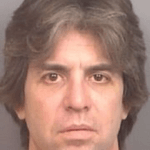
NEWS (8/14/20) — Alabama: The Alabama Court of Criminal Appeals has affirmed a lower court ruling granting a new trial to death-row prisoner Steven Petric based upon his lawyer’s ineffective representation at trial. Petric had been convicted and sentenced to death in 2009 for a rape and murder in suburban Birmingham two decades earlier.
Prosecutors said DNA evidence from semen and cigarette butts linked Petric to the crime, and they presented extensive evidence arguing that Petric had raped and murdered a woman he had been dating in Illinois. In February 2018, a Jefferson County circuit court overturned Petric’s conviction, finding that his trial lawyer, Charles Salvagio, had unreasonably failed to investigate the Illinois case and failed to rebut the prosecution’s claims by showing that the jury had acquitted Petric after video footage showed he had been elsewhere when those crimes were committed. The court further found that Salvagio had unreasonably promised the jury during his opening statement that the defense would show that another man who knew the victim had committed a similar murder, without having reviewed the record of the other case. At the close of the prosecution’s case against Petric, they provided the defense with a DNA report that cleared the alternate suspect of the other murder, leaving counsel without a defense.

NEWS (8/14/20) — Indiana: The Indiana State Police and federal death penalty protesters have reached a settlement of the protesters’ lawsuit seeking an injunction against ISP erecting execution-day roadblocks preventing protesters from holding a vigil and demonstrating within sight of the Terre Haute prison where the executions are taking place. The lawsuit, filed by the ACLU of Indiana on behalf of Death Penalty Action, the Indiana Abolition Coalition, Providence of Saint-Mary-of-the-Woods Indiana, and individual protesters, called the police roadblocks a “clear violation” of protesters’ First Amendment rights.
Under the terms of the settlement, the state police will no longer “erect roadblocks or other barriers” in the vicinity of the prison “that would prevent plaintiffs and their members from gathering near and within sight of the entrance to the Federal Correctional Complex in Terre Haute so that plaintiffs and their members may engage in protest activities prior and subsequent to the executions that take place within the Federal Correctional Complex.” The protesters agreed to withdraw the lawsuit and to not seek attorney fees.

NEWS (8/14/20) — North Carolina: By a 4 – 3 vote, the North Carolina Supreme Court has resentenced death-row prisoner Marcus Robinson to life in prison, ruling that the reinstatement of his death sentence following the legislature’s retroactive repeal of the state’s Racial Justice Act violated North Carolina’s constitutional prohibition against twice placing a person in jeopardy of life.
After an extensive evidentiary hearing, a Cumberland County trial court ruled on April 22, 2012 that Robinson had proven that race was a substantial factor in the imposition of his death sentence. The North Carolina Supreme Court returned the case to the trial court to provide prosecutors an additional opportunity to challenge Robinson’s evidence. The state legislature then amended the law to limit the circumstances under which Racial Justice Act relief could be granted. When relief was granted to three more death-row prisoners under the amended act, the legislature then repealed the RJA altogether.
The court majority wrote: “Once Robinson’s death sentence was vacated under the RJA, Article I, Section 19 of the North Carolina Constitution barred the reinstatement of his capital sentence.” DPIC will discuss the decision in more detail in a forthcoming What’s New feature.

NEWS (8/14/20) — Virginia: After twice having been directed by a federal appeals court to review Thomas Porter’s claim that a biased juror sat on the panel that convicted him and sentenced him to death, a judge of the U.S. District Court for the Eastern District of Virginia has again denied Porter’s habeas corpus petition. Senior Judge Henry E. Hudson rejected Porter’s claim, ruling that Porter had not proven that a juror who did not disclose that he had a brother and three cousins who worked in law enforcement; that two other brothers, his son, and his niece had been arrested or charged with criminal activity; and that one of his brothers had been assaulted twice and his parents killed in a car accident by a driver alleged to have been drunk was “impartial [sic] due to actual bias.”
In denying Porter a new trial, Hudson wrote that the juror, Bruce Treakle, “did not repeatedly lie or intentionally conceal material information in [jury questioning] to secure a spot on the jury.” It was the third time that Hudson — a former Commonwealth Attorney for Arlington, Virginia who reportedly once said “I live to put people in jail” — has dismissed Porter’s challenges to his conviction and death sentence.
In August 2014, Hudson granted Virginia prosecutors’ motion to dismiss Porter’s habeas petition without addressing the juror bias claim. The U.S. Court of Appeals for the Fourth Circuit returned the case to Hudson with directions to rule on the claim. In April 2016, Hudson summarily dismissed the juror bias claim without an evidentiary hearing, saying it “lacks merit.” The Fourth Circuit reversed that judgment and remanded the case a second time, this time directing that Hudson conduct an evidentiary hearing before deciding the issue.

NEWS (8/10/20) — California: The California Supreme Court upheld the conviction and death sentence of two Los Angeles County death-row prisoners, in cases arising out of unrelated murders of four victims.
Anh The Duong was sentenced to death on three counts of first-degree murder in a quadruple killing after an argument in an El Monte, California nightclub in 1999. He also was convicted of one count of second-degree murder. The direct appeal decision came 17 years after Duong’s trial in 2003. The court rejected Duong’s claim that pretrial publicity made it impossible for him to get a fair trial in Los Angeles County, noting that “eight print articles about the case published over a period of more than three years” did not constitute the type of “sensational and extensive” coverage that would make it impossible to receive a fair trial in the county.
Alfonso Morales was sentenced to death for the murders of four members of a family, three of whom were stabbed to death and the fourth, an eight-year-old girl, who was sexually assaulted and asphyxiated. The court denied Morales’ challenge to the prosecution’s use of a crime-scene reconstruction witness whose training consisted of grammar school and high school math and science courses, one college-level course in physics for health sciences, a 40-hour course on blood spatter, and trained for six months in the coroners, where he conducted no autopsies. The court found the claim waived by counsel’s failure to object at trial and, alternatively, ruled that any error was harmless.
The defendants may ask the U.S. Supreme Court to review their cases or they can start the state post-conviction process. California death-row prisoners face a multi-year wait for the appointment of post-conviction counsel, and state and federal post-conviction review of capital cases typically takes well over a decade once counsel is appointed.
Linda Greenhouse, Prosecutor in Pentagon Case: Quiet ‘Bulldog’ and Moralist, New York Times, June 28, 1988; Elizabeth DePompei, Indiana State Police agrees to allow death penalty protesters to gather closer to prison, Indianapolis Star, August 14, 2020; Fox59 Web, ACLU files lawsuit against Indiana State Police over death penalty protests at Terre Haute prison, WXIN, Indianapolis, August 4, 2020.



